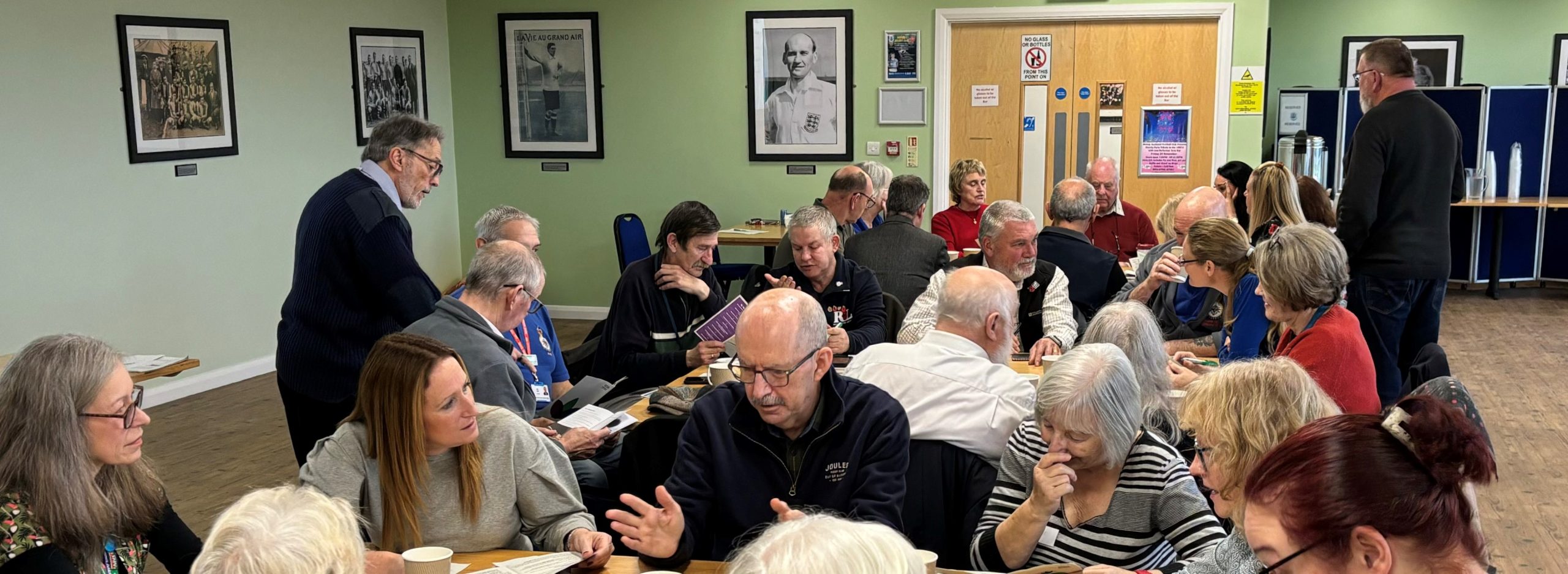
Act On Cancer Together | Your Cancer Services
26 January 2024 — david-allen
In Brighton and Hove, the rates of people attending their cancer screening appointments are lower than the national average.
Cancer is a major contributor to the significant life expectancy gap in the city, with a gap of approximately 11 years between our deprived neighbourhoods and more affluent areas.

In general, residents of highly deprived neighbourhoods and members of ethnically and culturally diverse communities are diagnosed with cancer later, leading to worse health outcomes and further entrenching health inequalities.
To address this startling issue, The Trust for Developing Communities have launched a new project, Act on Cancer Together (ACT).
ACT is a proud partnership between The Trust for Developing Communities, Hangleton and Knoll Project and Macmillan Cancer Support to raise awareness of the early signs and symptoms of cancer, support community members to learn about and attend cancer screenings, and to access the support available to them if they receive a diagnosis of cancer.
The team shares information across the city, supporting people to fully understand and attend cancer screenings. They also support communities to access the excellent post-diagnosis services on offer from Macmillan.
What is on offer:
- One-to-one support to attend cancer screening appointments.
- Cancer awareness workshops for community groups or workplaces (or anyone who is interested!)
- Cancer resources for all abilities and needs.
- Onward support for those with a diagnosis through the Macmillan Horizon Centre.
Following last month’s Cervical Cancer Prevention Week, the team are particularly encouraging younger people to take up the HPV vaccine. Check out their social media posts about the ways #WeCanEndCervicalCancer, and for more campaigns in the coming months.
Let’s #ActOnCancerTogether.

Facebook Page: https://www.facebook.com/TrustforDevelopingCommunities
Website: https://actoncancertogether.org.uk/
Latest Articles
See all Articles
01 August 2025 — Jessica Bailey
Bridging the Gap: Supporting Veterans in County Durham and Darlington with Cancer Information and Support | Guest BlogIn this guest blog post, we hear from the County Durham and Darlington Veterans’ Project as they share how they are supporting veterans with cancer information and support, while working to remove the barriers veterans often face when accessing health and wellbeing services. “In County Durham and Darlington, the percentage of people who have […]

30 July 2025 — Jessica Bailey
NeuroSAFE technique: how it works, benefits and outcomes | Guest Post by Santis HealthThere are often many options when facing cancer treatment and surgery. It’s important to discuss with your oncology team and raise any questions you might have to find the treatment that is right for you. If you have the option of private treatment, there may be procedures to consider that aren’t available on the NHS. […]
